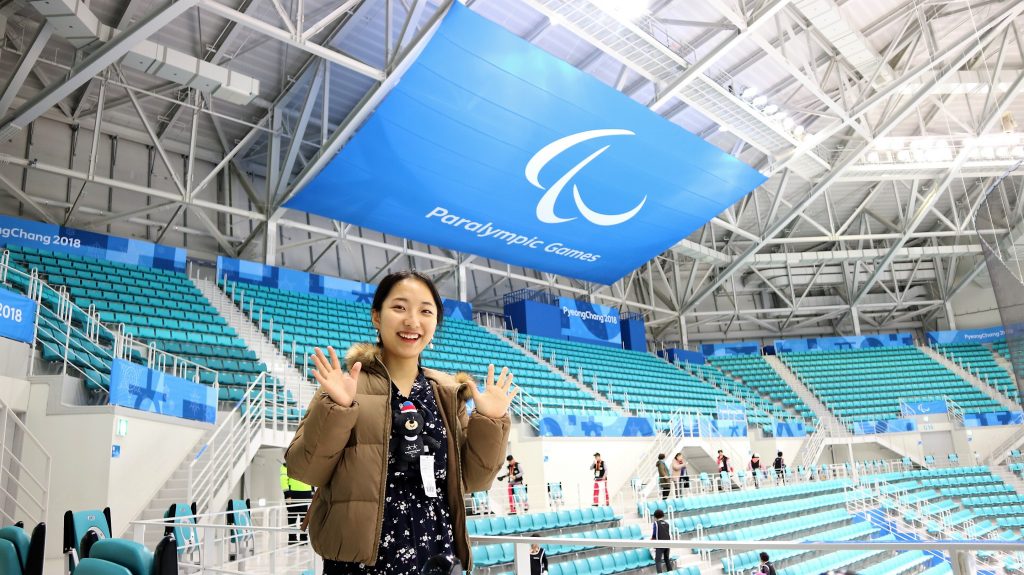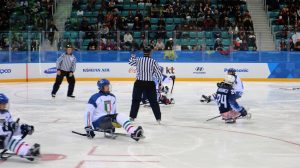South Korea Alumni Update by Yunyi Cho at the Paralympics

‘Hey Yunyi, I got Paralympic ice hockey game tickets. Do you want to come with me?’ I made a quick decision to see the Paralympic games on that night and bought a bus ticket for Gangneung. Yes, life is amazing in this way and I even enjoyed the 7 hour journey. There were two reasons why I wanted to see the Paralympic Games. First, while studying education, I took a special education course and it led me to have an interest in disabilities. Second, I wanted to be moved by something from the Paralympic athletes. Furthermore, I sought inspiration from the athletes who overcome the difficulties and hardship throughout the game and expected myself to be motivated by their positive attitudes.
I was sound asleep once I got on the express bus to Gangneung. When I arrived, the first impression I came across from the ice hockey center was that it was relatively quiet compared to the Olympic Games, which got a lot of attention from all over the world; there were many vacant seats. As the game went on, I did not see any leniency on the disabled players. They contended with adversaries and received a penalty like any other non-disabled players. They were players who did their best for the game like anyone else. Three rounds afterward, each greeted one’s family and friends and embraced with a smile.

Frankly speaking, I didn’t feel impassioned and I felt so weird. I asked myself continuously, “Why did I want to beimpressed by Paralympic players? Why did I try to get inspiration from them?” After long consideration, I concluded that I had prejudices that the disabled would have a long face or they have to show the process of overcoming obstacles. A friend of mine also said “Wow, it is so fantastic that you went there because in that kind of place you can get motivation from them’. I puzzled out that multiple people unconsciously regard people with difficulties as giving an inspirational stuff.
I became aware that positive prejudice could hurt people, not to mention negative prejudice, and it prevents us from loving others. Why do we set extremely low or high standards, which are arbitrary, for the disabled and expect them to give motivation? Athletes with disabilities are not subjects to impress us, but they are only one ordinary person who is invaluable in themselves. The disabled, however, are focused on ‘what kind of disability’ they have and how they overcome it. During this course, disability is set as a negative, bad thing and must be dealt with. That is why there has not been a spotlight for the commonness of the disabled. Although the disability is one part, it becomes a decisive factor which determines all of the traits a person has.
April 20th is the day of disabled people in Korea. While commemorating this day, I want people to think about the true meaning of ‘inclusion’ between disabled and nondisabled people both quantitatively and qualitatively. It is also crucial to focus on more aids and institutional improvements but I believe that we also need to reflect on our own viewpoint. I would like to conclude my writing with a transformation of ‘I have a dream’ speech. I have a dream that one day the disabled are not judged and not regarded as special solely by their disorder but by their own unique character.
Written by Yunyi Cho, South Korea, a 2016-2017 Global UGRAD student at Northern Michigan University.